We are finally seeing a gradual end to this Covid-19 lockdown, with pubs, restaurants, cinemas and hairdressers able to reopen from 4th July.
The 2m social-distancing rule will be replaced with a "one-metre plus" rule, meaning people should stay at least 2m apart where possible, but otherwise should remain at least 1m apart while taking steps to reduce the risk of transmission, such as wearing face coverings.
This for many, will be a new opportunity to help get our industry back to near normality.
More and more businesses are gearing up to attract their customers back and start earning some much-needed income. I personally still worry about the long-term damage this pandemic may still cause. I am sure there will be a lot of our turf industry businesses and services that will fail to recover from this pandemic.
I also wonder how many football, rugby, bowls and cricket clubs will have to close? Those that survive are likely to see longer-term budget restrictions placed on them, placing strain on maintenance works in the coming years.
I am sure many of our prestigious sports facilities will eventually come out of this period of uncertainty, however it is the grass roots / community clubs I fear for the most.
Let’s just hope that we can see a return to normality quicker than we think. I am sure there will be a lot of people desperate to get back into being active again and enjoying their sport and pastimes.
Pitch maintenance funding
If the recent upsurge in popularity of golf is anything to go by, there will hopefully be a high demand for our community sports club facilities, with people eager to get back to full fitness and participate in competitive sport again.
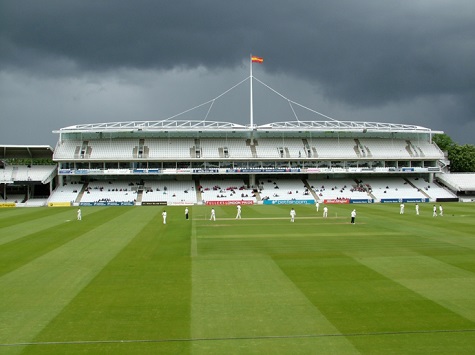
We all know that the success of any natural grass sports facility is down to a number of key factors; its location, the state of the playing surface, the ambience of the clubhouse and, most importantly, how the facility is run and managed. That's a lot of factors to get right to ensure a club remains successful and solvent.
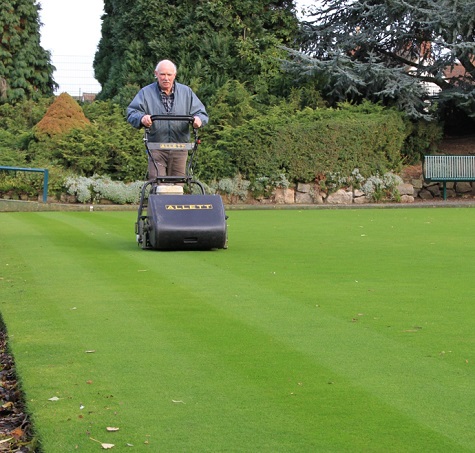
I still find it ironic that the one major asset of any sports club - the pitch, green, playing surface, call it what you will - is, by and large, given the lowest priority when it comes to funding, management and resources.
Bowling clubs are a prime example. In recent years, the sport has suffered a downward spiral of club closures and a loss of members. Much of the cause for this, I believe, is clubs not investing in their main asset - the green. Whilst the people who are tasked with looking after it are rarely given the support and financial backing to make a difference.
It is vitally important that clubs put aside an allocation of funds for the maintenance of their facilities.
At the end of the day there is a basic cost for materials and specialist operations. A typical end of season bowling green renovation, using a competent contractor, will cost between £1600-£2000; this would usually include the cost of the labour and materials - scarification, aeration, topdressing and overseeding.
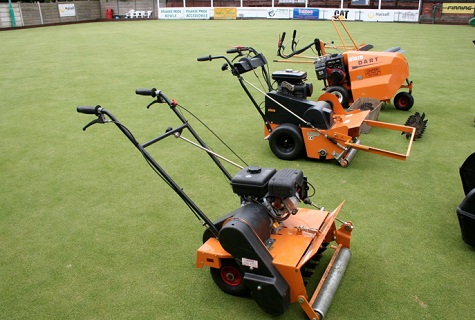
Some contractors will offer a yearly maintenance programme which will allow for spring and end of season renovation work, plus a number of other relevant cultural practices, such as regular aeration, and applications of fertilisers, wetting agents and fungicides to keep the green in good condition. This might also include some winter mowing regimes. However, it may be that the contractor, unless asked, will not normally carry out the regular mowing duties during the growing season, but will always be available to offer advice and knowledge as required.
The cost for this would be in the region of £6000-£9000 depending on circumstances, location, and condition of the green. All of the above costs are only a guide.
The same can be said for rugby and football clubs, we often see not enough money being set aside or invested for the appropriate maintenance of their natural grass pitches.
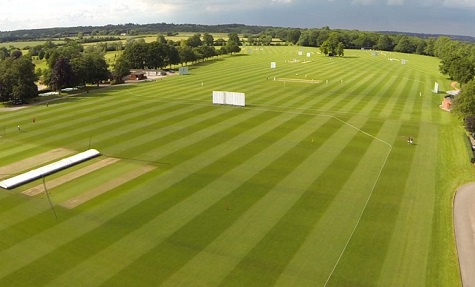
I recently have spoken to a number of turf professionals to gauge their thoughts on this and we agreed that for a given full size (single) soil based natural grass football or rugby pitch, the annual maintenance cost would be between £10,000-£20,000 depending on the level of input given. A typical end of season renovation undertaken by a contractor, that sees the pitch being scarified, vertidrained, topdressed (60 tonnes of sand), oveseeded and fertilised, is likely to cost between £6000-£9000 alone. With the annual maintenance costing around £10,000 based on a weekly mowing of the pitch, fertilising, weed control, vertidrain / linear aeration, marking out and other essential operations.
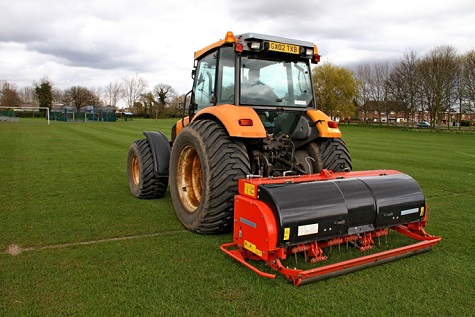
Cricket comes at a similar cost between £15,000-£22,000 per year depending on the size of the square.
These costs are based on the clubs doing it themselves or hiring in contractors. If you were to have a professional groundman being employed by the club , you will have a wage to pay. Based on recommended GMA salary scales this would be a minimum of £18,000 plus the cost of materials, machinery and any renovation investments.
Many clubs, rely heavily on the goodwill of volunteers - often past players who still want to give something back to the clubs. I hate to think what would happen if we did not have them. They must save our grassroot clubs thousands of pounds every year?
Even if you have a wealth of volunteers, you still need to have the appropriate machinery and equipment for them to use and there is still a cost for renovation work and materials.
Quite often, clubs have old and inappropriate machinery that often breaks down or is not fit for purpose. In turn making the job more difficult to achieve.
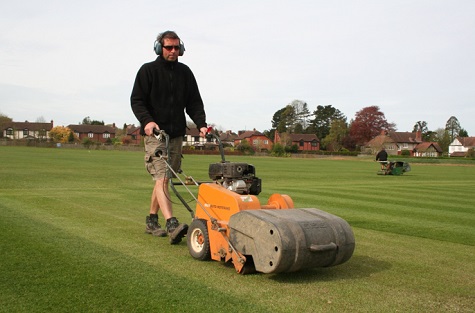
Even if a football club had the right set of up to date equipment, their investment in mowers, outfield spikers, Sisis Quadra Play, marking out equipment, fertiliser spreaders, compact tractor and such like could be in excess of £30,000. Therefore, over a period of five years, that would mean an investment of £6000 a year plus the cost of an end of season renovation and materials which again would bring us back to an annual figure of around £15,000.
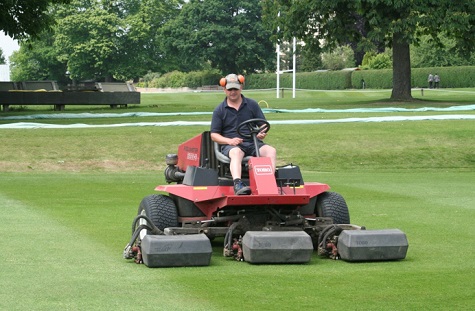
There is no getting away from it, there is a significant cost for the provision of a playing surface. Club treasurers and managers need to acknowledge this and budget accordingly, plus find ways to fund these necessary operations.
For many clubs, player membership fees are generally quite low.
Bowls clubs tend to charge anything between £70 - £160 for full, senior membership depending on the status of the club and what it can offer.
Cricket Clubs tend to charge anything between £90 -£300 for membership. However, there are many variants in regard to fees payments. Is it all inclusive or are there additional fees to be paid such as match days fees / teas, umpires etc. I recently read a very interesting article that covers the wide ranging issues clubs need to undertake to remain viable.
Football grassroots clubs. Again these costs vary but generally annual membership range between £40-£100 per player with some clubs charging an additional £10 per player match day fee
I came across this article that discussed costs of grassroots in England that is an interesting read.
Rugby Clubs senior player membership varies from £100-£250 with varying other fees for juniors, women and youth members.
Running costs
So are these fees anywhere near enough or should clubs be charging more? If you or I want to join a fitness club we would be expected to pay around £500 annual membership, far higher than most grassroots club memberships rates.
Do we therefore need to raise our club memberships to a more realistic figure? Or do we retain current rates and then find other ways to subsidise clubs running costs? Many clubs do manage to raise additional funding via sponsorship deals, or specific money raising events, such as music festivals and bonfire events.
We must recognise that clubs face a plethora of running costs as well as trying to find money for the maintenance of their pitches.
For several years both Keith Kent and I have been advocating that rugby clubs could raise specific funding for the maintenance of their pitches by charging a specific fee for any member who uses the pitches for training / playing.
Take a typical rugby club that has over 300 members (senior and junior). If we were to charge them £1 each a week during the playing season, that would equate to £300 per week, £1200 per month, x 10 months would bring in £10,800. A substantial amount of money that could be invested in the pitches.
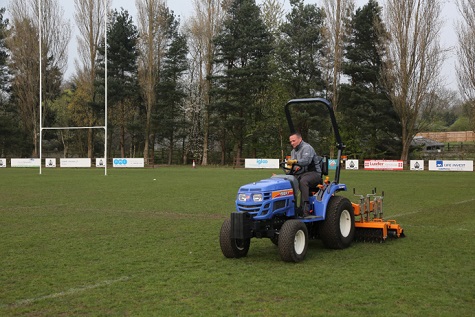
Most bowls clubs have around fifty members in total. Therefore, if they were to charge just £100 per year membership - that's under £2 per week - that, in itself, would raise £5000 a year. A substantial sum which, if set aside for greens maintenance, would make a real difference to its condition. A good playing surface will not only retain existing members but attract new ones. It sounds simple doesn't it, but in my experience, rarely happens.
The same can be said for cricket clubs. Most reasonable size clubs again have in excess of 200 members (junior/ senior). Based on a £1 per week that again would equate to £200 per week, £800 a month x 10 months =£8000 to invest in the facilities.
There will always be a cost to providing these essential sporting facilities. It is about time we recognise these annual costs and budget appropriately for them year on year.
In essence, it is all about planning, marketing and running a community asset that for many years has inspired many youngsters to go on and become good rounded competitive adults.
While on the subject of sharing information, Myself and Keith Kent, ex Twickenham head groundsman, will be conducting a new RFU Club Pitch Maintenance Drop-in Clinic on the 2nd July. Hopefully, this will be the first of many, that enables clubs by appointment to seek advice about their pitches in the coming months. Email groundsmenconnected@rfu.com
